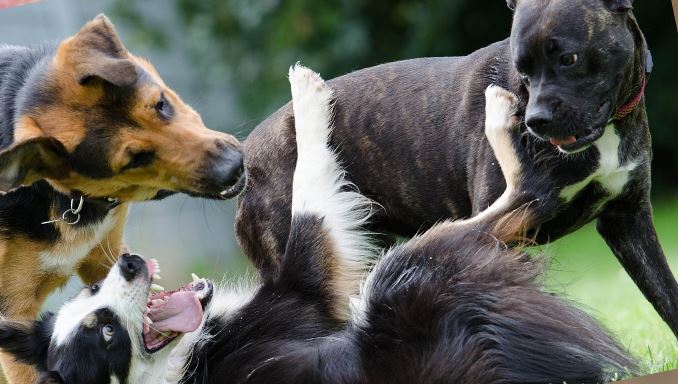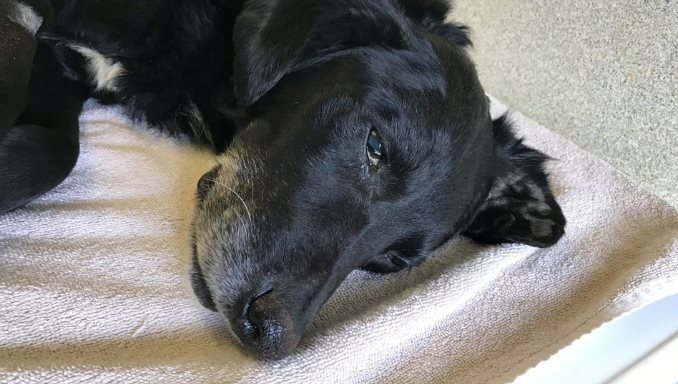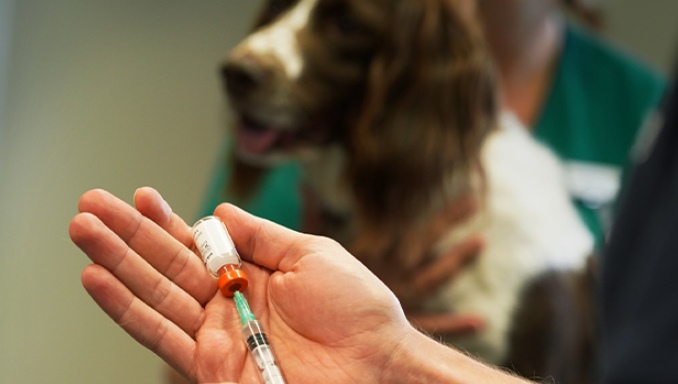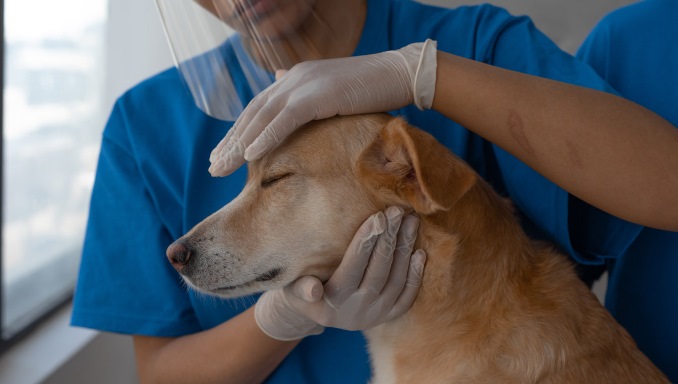What Is Kennel Cough?
Do you know what is kennel cough? Does your dog have a cough? If so, it might be kennel cough. Kennel cough is a highly contagious respiratory infection that dogs can get from other dogs, typically in boarding facilities or shelters. While not serious in most cases, kennel cough can be uncomfortable for your dog and lead to secondary infections if left untreated. Here’s what you need to know about kennel cough and how to treat it.
What Is Kennel Cough?
What is kennel cough in dogs? Kennel cough is a highly contagious respiratory infection that can affect dogs of all ages. The disease is caused by a number of different viruses and bacteria, including Bordetella bronchiseptica, parainfluenza virus, and adenovirus type 2. Infected dogs will typically develop a harsh, dry cough that may be accompanied by runny nose, fever, and lethargy. Kennel cough is easily spread from dog to dog through close contacts, such as at a kennel or dog park. The presence of a fever varies from case to case.
The best way to prevent the disease is to keep your dog up-to-date on his vaccinations, including the Bordetella vaccine. If your dog does contract kennel cough, he will likely recover within a few weeks with proper treatment. However, the disease can be more severe in puppies and older dogs, so it is important to consult your veterinarian if you think your dog may be infected.
Is Kennel Cough Deadly?
In addition what is Kennel Cough, is Kennel Cough deadly? No, kennel cough is not deadly. However, it can cause some severe respiratory problems in puppies and older dogs. If your dog has kennel cough, you should take him to the vet as soon as possible. The vet will likely prescribe antibiotics to help clear up the infection. Additionally, make sure your dog gets plenty of rest and keep him away from other dogs until he is fully recovered.
What Does Kennel Cough Sound Like?
Kennel cough sounds like a harsh, dry cough, if your dog has Kennel Cough, they will likely have a harsh, dry cough that sounds similar to a human smoker’s cough. . The cough may be accompanied by runny nose, fever, and lethargy. If your dog has these symptoms, take him to the vet as soon as possible.
What Can Be Mistaken For Kennel Cough?
There are a few conditions that can be mistaken for kennel cough, as they can cause similar symptoms. These include allergies, viral infections, bacterial infections, and heart disease. Maybe it also includes Bordetella, parainfluenza, and adenovirus type 2. If your dog has any of these conditions, he will likely have a harsh, dry cough. In some cases, the cough may be accompanied by a runny nose, fever, and lethargy. If you think your dog may have kennel cough, take him to the vet as soon as possible for a diagnosis and provide the appropriate treatment.
How Is Kennel Cough Spread?
Kennel cough is spread through close contact with other dogs. The disease is easily spread in places where dogs are in close quarters, such as kennels, dog parks, and daycare facilities. If your dog is around other dogs that are coughing, he is at risk of contracting the disease.
How Long Does Kennel Cough Last?
Kennel cough is a highly contagious respiratory infection that can affect dogs of all ages. The good news is that it is usually mild and will clear up on its own within a few weeks (1-3 weeks). However, some dogs may require treatment from a veterinarian if they develop pneumonia or other complications.
Is Kennel Cough Contagious To Humans?
What is Kennel Cough infection? Does it contagious to humans? The short answer to this question is yes, kennel cough is contagious to humans. However, the chances of a human contracting kennel cough from a dog are relatively low. Kennel cough is most commonly spread through direct contact with an infected dog, or through exposure to the dog’s saliva or respiratory secretions. It can also be spread through contact with contaminated surfaces, such as food bowls or bedding. Kennel cough is not a serious threat to human health, and the vast majority of people who contract the illness will recover without any complications.
However, in rare cases, kennel cough can lead to more serious respiratory infections in people with weakened immune systems. If you are concerned about contracting kennel cough, the best way to prevent the illness is to avoid contact with dogs that are known to be infected. If you must interact with an infected dog, be sure to wash your hands thoroughly afterwards.
Is Kennel Cough Contagious To Cats?
Yes, kennel cough is contagious to cats. It is a highly contagious disease that can spread quickly among animals in close contact with each other, such as those in a kennel or shelter. Infected cats can spread the disease to other cats through direct contact, coughing and sneezing. The good news is that kennel cough is usually not a serious disease and most cats recover within a few weeks. However, it is important to see your veterinarian if your cat is showing any signs of illness, as kennel cough can sometimes lead to more serious respiratory infections. Treatment is typically with antibiotics and supportive care. Prevention is the best approach and can be accomplished by vaccinating your cat against the disease and maintaining good sanitation practices.

How Do Dogs Get Kennel Cough?
Now you already know what is Kennel Cough, but how do dogs get it? Kennel cough is spread through close contact with infected dogs, as well as through the air. The disease is most commonly seen in environments where dogs are in close quarters, such as kennels, shelters, grooming facilities, and dog parks. Dogs of all ages and breeds can be affected by the disease, but it is more common in puppies and young dogs.
Symptoms of Kennel Cough
Kennel cough is a highly contagious respiratory infection that is common in dogs. The main symptom of kennel cough is a harsh, dry cough that sounds like your dog has something stuck in his throat. Other symptoms may include fever, lethargy, and loss of appetite. In some cases, dogs may also experience retching or gagging, as well as vomiting and diarrhea. Kennel cough is usually a mild disease, but it can be more severe in puppies and older dogs.
If your dog is showing any of these symptoms, it is important to take him to the vet for treatment. Kennel cough is usually treated with antibiotics, but in severe cases, your dog may need to be hospitalized. Prevention of kennel cough is through vaccination and good hygiene practices.
When is kennel cough contagious?
The incubation period for kennel cough is usually 3-10 days, during which time the virus is highly contagious. Kennel cough is most commonly spread through contact with other infected dogs, either through close contact or by sharing contaminated objects like food bowls or toys. The virus can also be spread through the air, so even if your dog doesn’t interact with other dogs, he can still be at risk. If you suspect your dog has kennel cough, it’s important to take him to the vet as soon as possible so he can get the proper treatment.
Kennel cough is a highly contagious disease, so if your dog is diagnosed, be sure to take precautions to prevent the spread of the virus to other dogs. For example, keep your dog away from other dogs as much as possible and clean all of his belongings (bedding, toys, etc.) thoroughly. If you have any other questions about kennel cough, be sure to talk to your veterinarian.

Treatment of Kennel Cough
Kennel cough is a highly contagious respiratory infection that affects dogs of all ages, breeds, and sizes. Although it is usually not serious, kennel cough can be very uncomfortable for your dog and may lead to more serious health problems if left untreated.
Kennel cough is usually a self-limiting disease, meaning that it will resolve on its own within a few weeks. However, some dogs may require treatment to help relieve their symptoms. Treatment options for kennel cough include antibiotics, anti-inflammatory drugs, and cough suppressants. In severe cases, dogs may need to be hospitalized for supportive care.
Summary, there are a few different ways that you can treat kennel cough, depending on the severity of the cough and the underlying cause. If your dog has a mild case of kennel cough, they may only need rest and plenty of fluids. More severe cases may require antibiotics or other medications. Kennel cough is most commonly caused by a virus, so antibiotics will not be effective in these cases. In severe cases, hospitalization may be necessary for treatment.
Kennel Cough Treatment At Home
Beside the questions for what is Kennel Cough, you may need to know how to treat Kennel Cough at home.
If your dog has come down with a bout of kennel cough, you may be wondering what the best course of treatment is. While there are a number of different options available from your veterinarian, there are also a few things that you can do at home to help your furry friend feel better.
The most important thing that you can do is to make sure that your dog is getting plenty of rest. This means keeping them away from other dogs, as well as any other potential sources of infection. If possible, it’s best to keep them in a separate room from the rest of the family so that they can get the peace and quiet that they need to recover.
Another important thing to remember is that your dog will need to drink plenty of fluids in order to stay hydrated. This means offering them water or low-sodium chicken broth frequently throughout the day. You may also want to consider giving them pedialyte, which can help replace electrolytes that are lost through vomiting or diarrhea.
In addition to rest and fluids, there are a few other things that you can do to help your dog recover from kennel cough. One is to use a humidifier in their room, which will help to loosen the mucus in their chest and make it easier for them to cough it up. You can also try giving them a little bit of honey, which can help to soothe their throat.
Finally, it’s important to keep an eye on your dog’s temperature. If they start to run a fever, it’s important to take them to the vet right away as this can be a sign of a more serious infection.
There are a number of things you can do to help cure your dog of kennel cough, including:
-Take your dog to the vet for a check-up and treatment.
-Make sure your dog is up to date on all his vaccinations.
-Keep your dog away from other dogs that may be sick.
-Increase the amount of time your dog spends outside in fresh air.
-Give your dog plenty of rest.
-Feed your dog a healthy diet.
-Make sure your dog has access to clean water at all times.
-Clean and disinfect your dog’s living area on a regular basis.
-Talk to your vet about giving your dog a kennel cough vaccine.
By following these simple tips, you can help your dog recover from kennel cough in no time.
What To Feed A Dog With Kennel Cough?
What is Kennel Cough’s food? As mentioned earlier, kennel cough is a highly contagious disease that can affect dogs of all ages. If your dog has contracted the disease, it is important to take him to the vet for proper diagnosis and treatment. In the meantime, there are a few things you can do at home to help ease your dog’s symptoms and make him more comfortable.
One of the most important things you can do for a dog with kennel cough is to make sure he stays hydrated. Offer him small amounts of water frequently throughout the day, and if he’s not interested in water, try offering chicken broth or pedialyte instead. Avoid giving your dog milk, as it can actually make his symptoms worse.
Another important part of caring for a dog with kennel cough is making sure he gets plenty of rest. Avoid strenuous activity and keep him in a quiet, comfortable place. A crate or small room where he can’t be disturbed by other animals or loud noises is ideal.
Finally, it’s important to feed your dog a nutritious diet while he’s recovering from kennel cough. Stick to simple, easily digestible foods like boiled chicken and rice. Avoid fatty or spicy foods, as they can aggravate your dog’s symptoms. If your dog is struggling to eat, talk to your vet about giving him an appetite stimulant.
How To Soothe Kennel Cough
If your dog has been diagnosed with kennel cough, there are a few things you can do at home to help ease their discomfort.
Firstly, make sure they are getting plenty of rest and aren’t exerting themselves too much. Kennel cough is a respiratory infection, so it’s important to give your dog’s body the time it needs to heal.
To help with the coughing, you can try giving your dog small amounts of honey or warm water with lemon juice. These natural remedies can help to soothe the throat and ease the cough.
You should also make sure your dog is staying hydrated by offering them plenty of fresh water throughout the day.
If your dog’s kennel cough is severe, or they are showing other signs of illness, it’s important to take them to the vet for treatment. Kennel cough can sometimes lead to more serious respiratory infections, so it’s best to err on the side of caution and get your dog checked out by a professional.

Kennel Cough Vaccine
The kennel cough vaccine is a highly effective way to protect your dog from the ambitious and potentially deadly disease. So, what is Kennel Cough vaccine?
There are two types of kennel cough vaccines: intranasal and injectable.
The intranasal vaccine is more effective, offering protection for up to 12 months. The injectable vaccine offers protection for up to 6 months.
The kennel cough vaccine is typically given once a year, with booster shots as needed.
If your dog is going to be in close contact with other dogs, such as at a boarding facility or doggy daycare, the kennel cough vaccine is a must.
The kennel cough vaccine is a safe and effective way to protect your dog from this potentially deadly disease. Talk to your veterinarian about which vaccine is right for your dog.
When To Vaccinate Your Puppy?
Puppies should be vaccinated for kennel cough at 8, 12, and 16 weeks of age. They will need a booster vaccine at one year of age, and then once every year after that.
If your puppy is going to be in close contact with other dogs, such as at a boarding facility or doggy daycare, the kennel cough vaccine is a must.
The kennel cough vaccine is a safe and effective way to protect your dog from this potentially deadly disease. Talk to your veterinarian about which vaccine is right for your puppy.
Side Effects of the Kennel Cough Vaccine
The most common side effect of the kennel cough vaccine is a mild, temporary soreness at the injection site.
Other possible side effects include lethargy, fever, and loss of appetite. These side effects are usually mild and resolve on their own within a few days.
In rare cases, more serious side effects such as allergic reactions can occur. If you notice any side effects after your dog is vaccinated, please contact your veterinarian.
The kennel cough vaccine is a safe and effective way to protect your dog from this potentially deadly disease. Talk to your veterinarian about which vaccine is right for your dog.
How Much Is Kennel Cough Vaccine?
The cost of kennel cough vaccine can vary depending on the brand, where you purchase it, and if your dog is already up to date on their vaccinations. Typically, the vaccine costs between $15 and $30. Some veterinarians may offer a package deal if your dog needs other vaccinations at the same time. Know you know what is Kennel Cough vaccine price, keep reading.
If you are boarding your dog or taking them to a daycare, they may require proof of kennel cough vaccination. Be sure to ask the facility what their policy is and if there are any additional costs associated with getting your dog vaccinated.
Preventing your dog from getting kennel cough is important, as it is a highly contagious disease. The kennel cough vaccine is typically given as an intranasal spray or an injection. It is important to talk to your veterinarian about which vaccine is right for your dog and follow the schedule they recommend.
Is Bordetella Kennel Cough?
Bordetella is a type of bacterium that can cause kennel cough. It is the most common cause of kennel cough, but there are other bacteria and viruses that can also cause the disease. Bordetella is spread through contact with infected dogs, either through the air or by direct contact. The bacteria can live on surfaces for up to 48 hours, so it is important to disinfect any area where an infected dog has been. Kennel cough is a highly contagious disease, and most dogs will be exposed to it at some point in their lives.
There is no one definitive answer to the question of whether or not Bordetella is kennel cough. Kennel cough is a general term used to describe any cough that a dog gets while in a kennel or boarding facility. Bordetella is the most common cause of kennel cough, but there are other bacteria and viruses that can also cause the disease. So, while Bordetella may be kennel cough, not all kennel cough is caused by Bordetella.

Over The Counter Kennel Cough Medicine
Just as there are many over-the-counter medicines available to treat human colds and coughs, there are also several options available to treat your dog’s kennel cough. However, it’s important to note that not all of these medications are created equal. Some may be ineffective or even dangerous for your pet. That’s why it’s always best to check with your veterinarian before giving your dog any over-the-counter medication, even if it’s something as seemingly harmless as kennel cough medicine.
There are two main types of kennel cough medications available over the counter: antitussives and expectorants. Antitussives work to suppress your dog’s cough reflex, while expectorants help to thin out the mucus in your dog’s respiratory tract, making it easier for him to expel.
Some common over-the-counter antitussives include dextromethorphan (the same ingredient found in many human cough medicines) and codeine. Expectorants such as guaifenesin and terpin hydrate can also be found in many human cough medicines.
As with any medication, it’s important to follow the dosage instructions on the package carefully. Never give your dog more medication than what is recommended, and always check with your veterinarian first to make sure the medication is appropriate for your pet.
How to Prevent Kennel Cough
To help prevent your dog from getting kennel cough, it is important to follow some simple tips. First, make sure that your dog is up to date on all vaccines. This includes the Bordetella vaccine, which is specific for kennel cough.
Secondly, keep your dog away from places where there are a lot of other dogs. This includes doggy daycares, dog parks, and boarding facilities. If you must take your dog to one of these places, make sure that they are well-ventilated and that the staff is cleaning and disinfecting regularly.
Finally, if your dog does start to show signs of kennel cough, take them to the vet immediately. With proper treatment, most dogs will recover quickly and without any complications.
Summary, There are a few things you can do to help prevent your dog from getting kennel cough:
• Vaccinate your dog according to the schedule recommended by your veterinarian.
• Avoid places where there are sick dogs. If you must go to one of these places, keep your dog away from sick dogs and practice good hygiene.
• If your dog is sick, keep them away from other dogs.
• Practice good hygiene. Wash your hands after handling your dog or being in areas where dogs are present.
The kennel cough vaccine is a safe and effective way to protect your dog from this potentially deadly disease. Talk to your veterinarian about which vaccine is right for your dog.

FAQs about What Is Kennel Cough
What antibiotics are used for kennel cough?
There are a number of antibiotics that can be used to treat kennel cough, but the most commonly used is doxycycline. Other antibiotics that may be prescribed include amoxicillin/clavulanate, azithromycin, and cefpodoxime.
How long does it take for kennel cough to go away?
Most dogs will recover from kennel cough within 2-3 weeks, but some may take longer. If your dog is not showing any improvement after 3 weeks, or if they seem to be getting worse, it’s important to take them back to the vet for re-evaluation.
How can I protect my dog from kennel cough?
The best way to protect your dog from kennel cough is to vaccinate them according to the schedule recommended by your veterinarian. You should also avoid places where there are sick dogs, and practice good hygiene. If your dog is sick, keep them away from other dogs.
Is kennel cough dangerous?
While kennel cough is usually not deadly, it can be dangerous for puppies, elderly dogs, and dogs with other health conditions. If your dog is showing signs of kennel cough, take them to the vet immediately.
Can humans carry kennel cough on their clothes?
Yes, kennel cough is a highly contagious disease, and humans can carry the bacteria on their clothes. If you have been in contact with a sick dog, it’s important to wash your hands and clothing thoroughly. You should also avoid contact with other dogs until the sick dog has recovered.
How long should I quarantine my dog with kennel cough?
If your dog has kennel cough, they should be quarantined for at least 2 weeks. During this time, they should not have contact with other dogs. After 2 weeks, if your dog is showing no signs of illness, they can be slowly reintroduced to other dogs.
What disinfectant kills kennel cough?
There are a variety of disinfectants that can kill kennel cough, but the most effective ones are typically those that contain bleach or quaternary ammonium compounds. Be sure to follow the manufacturer’s instructions when using any disinfectant, and make sure that the area is well ventilated during and after application. Some commonly used products that contain these compounds include Clorox Disinfecting Wipes and Lysol Disinfectant Spray.
Can I leave my dog home alone with kennel cough?
The answer to this question depends on the severity of your dog’s kennel cough. If your dog is otherwise healthy and his kennel cough is mild, then it is probably safe to leave him home alone. However, if your dog is sick with a more severe case of kennel cough, or if he has other health conditions that make him more susceptible to complications from kennel cough, then it is best to take him to the vet. Either way, it is important to closely monitor your dog for any signs of worsening kennel cough, such as increased coughing, difficulty breathing, or loss of appetite. If you notice any of these signs, then you should take your dog to the vet right away.
Is kennel cough worse at night?
Kennel cough is often worse at night, because the air is cooler and drier. This can cause your dog to cough more, which can make kennel cough symptoms worse. If your dog is coughing excessively at night, you should take them to the vet.
My dog has kennel cough and is sneezing blood. Is this normal?
If your dog is sneezing blood, it is not normal and you should take them to the vet immediately. Kennel cough can cause a variety of respiratory problems, including inflammation of the nose and throat, which can lead to bleeding. If your dog is having any other symptoms, such as difficulty breathing, loss of appetite, or lethargy.
Why is my dog coughing like something is stuck in his throat?
If your dog is coughing like something is stuck in his throat, it’s possible that he has an obstruction in his airway. This can be caused by a number of things, including kennel cough, allergies, or a foreign object. If your dog is having difficulty breathing, or if the coughing is accompanied by other symptoms such as vomiting, loss of appetite, or lethargy, then you should take him to the vet right away.
Will Kennel Cough go away on its own?
The answer to this question depends on the severity of the kennel cough and how effectively it is treated. Milder cases may resolve themselves without treatment, while more severe cases may require antibiotics. In either case, however, follow-up visits with your veterinarian are recommended to monitor the dog’s recovery and prevent a recurrence.
If left untreated, kennel cough can become more severe and potentially lead to pneumonia, which is a serious condition that may require hospitalization. If you suspect your dog has kennel cough, it’s best to take him or her to the vet for an examination and appropriate treatment as soon as possible.
Conclusion
Kennel cough is a highly contagious respiratory infection that can affect dogs of all ages. It is caused by several different viruses and bacteria, including Bordetella bronchiseptica, Canine Parainfluenza Virus (CPIV), and Adenovirus type 2. The best way to protect your dog from kennel cough is to make sure he is up-to-date on his vaccinations and to keep him away from other sick animals.
If you think your dog might have kennel cough, take him to the veterinarian for diagnosis and treatment.
Above is the article “What is kennel cough?. Thanks for reading!








